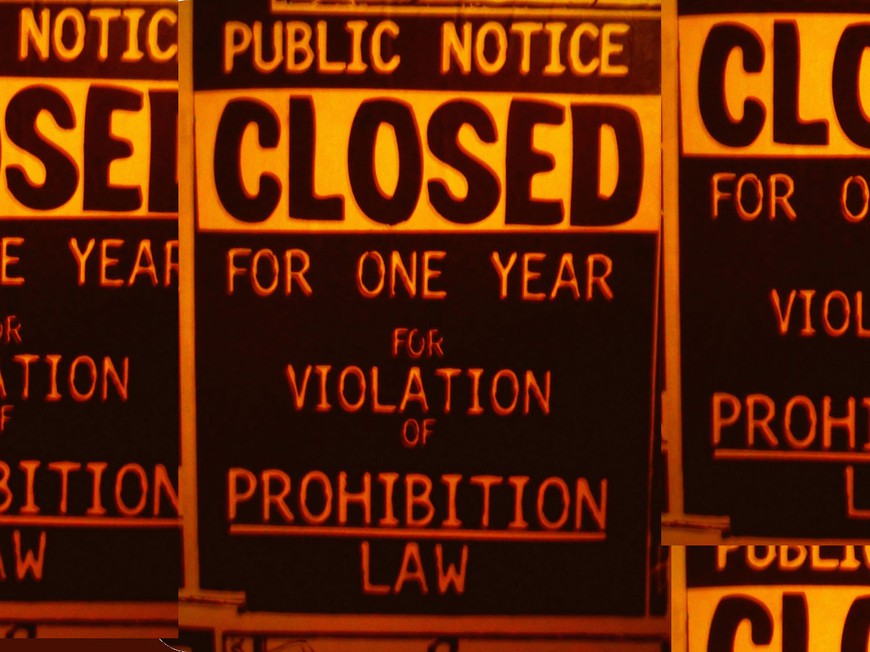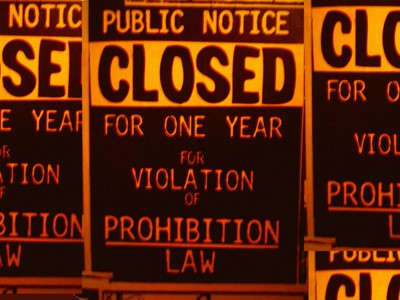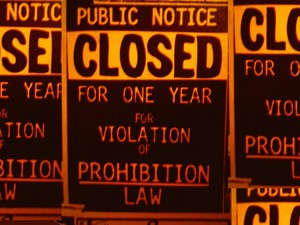

What laws changed in the US since Black Friday?
None nationally. In fact, very few poker related laws have changed since Black Friday. But, there was the very interesting DOJ opinion letter of last December, changing the DOJ’s interpretation of the Wire Act. That was a very significant event. But at least federally, there has been no change in any substantive federal law to this point.
 Colores Mari, Creative Commons Attribution 2.0 License Nevada passed a statute expressly allowing for licensing and regulation of online poker and Utah passed a law prohibiting its citizens from playing online poker or any kind of online game.
Colores Mari, Creative Commons Attribution 2.0 License Nevada passed a statute expressly allowing for licensing and regulation of online poker and Utah passed a law prohibiting its citizens from playing online poker or any kind of online game.
So those are the two changes in state law that I am aware of, but there has been no change in federal law.
Has the PPA been in contact with DOJ to lobby for fair and equitable distribution of funds after the Full Tilt Poker situation is settled?
Yes, that is already occurring, and it will continue to occur. It’s a top priority to protect FTP players as much as possible. The PPA has urged them to be respectful of players and their balances. No matter what happens between DOJ and FTP, we take the position that players are not criminals; players should not be punished as a result of these legal actions. We are hopeful.
The DOJ has said that they hope to have a procedure in place that will compensate people who lost money at FTP. At the same time, I haven’t seen the details of the agreement.
There is talk in the poker community that US players may only receive a fraction of their balances. It seems unlikely to me that the DOJ would strike a deal that allows ROW players to be made whole but not the US players.
I think you’ve identified a very legitimate concern. Based on what the DOJ has publicly said, i think they tend to feel the same way. Taking them at face value, I think they do want to see players reimbursed.
One can look back at the Neteller prosecution as a good example. When they took Neteller down it took about a year before people received their balances. There was a lot of wrangling back and forth before the case was settled, but ultimately everyone got paid in full. We certainly hope a similar result will happen with respect to the FTP situation.
But I’ll tell you this: what’s probably going to matter most is the practicalities of the situation. You here so many things about the deal, how much the DOJ seized, how much money FTP had left ... I don’t think the DOJ would ever purposefully deny players their money. I think the DOJ would like to see the players made whole, but one wonders if there is going to be enough money to make sure players are made whole.
Has the PPA been involved in the defense of any of the Black Friday indictees?
We do assist people in litigation, but have not directly assisted in this litigation. We always insist that people have their own lawyers, make their own decisions.
But at the same time, the legal arguments being raised by the lawyers of Elie and Campos (who did a great job, by the way) were legal arguments that we had a little hand in helping craft. But the lawyers who generally work in this field talk amongst ourselves. The legal arguments to a large extent had been published in articles, legal journals and also in some trade journals.
Is there any federal law that would prohibit international compacts such as what New Jersey has crafted their bill to allow?
There is nothing specific that would prohibit such activity. With the Wire Act out of the picture, there is no federal law affecting anything but sports betting. Beyond sports betting, federal law only comes into play if there is violation of state law. And most state laws don’t say anything about international compacts. So, there is certainly nothing out there saying that a state can’t do that but international law gets to be a relatively complex situation, and honestly I’m not an expert. I do know that there is nothing that specifically prevents or bans it.
There are some people who argue that a state does not have the authority to enter in to an agreement with a foreign country and that only the Federal Government can make agreements with a foreign country. That is a settled principal of law: The state of New Hampshire, for example, can’t go and sign a treaty with Canada. But, what is a treaty? Can a state do other things that are less than that? This is a brand new area. It is possible the Federal Government would assert that international compacts are akin to treaties and thus not a state power. It certainly hasn’t been said, one way or another. But lawyers love to think about hypothetical things like that.
Are there any offshore networks that are in a position to be never allowed back into the US market?
There aren’t at the moment. By asking this question we are basically speculating as to what future legislation might look like. In past versions of the proposed legislation in the House, talk at that time included provisions that would have banned offshore sites that had offered offshore poker. I believe the final result was worded in a way that anyone who offered an “illegal bet” couldn’t get a license in the future. That leaves some wiggle-room for the offshore sites to say, “Hey, what we did wasn’t illegal!”
That is what we hoped to have found out had Mr. Elie or Mr. Campos gone to trial.
Speaking of John Campos, Judge Kaplan is awaiting a written explanation as to why the prosecution is recommending such leniency. So come June, if he deems the explanation insufficient, what happens?
If he deems it unacceptable, he doesn’t have to accept the deal as entered. That is definitely in a Judge’s prerogative. If that happens, the next move is up to the DOJ and to a lesser extent, Mr. Campos. They could theoretically say, “Okay the deals is off, lets reschedule the case for trial.” Or they could try and rework the deal. Maybe Mr. Campos would be willing to accept a harsher punishment that would please the judge, or the DOJ could drop the charges. And anything in between is possible.
What would be the motivation for Judge Kaplan to do this?
This is all speculation, I wasn’t there. But consider the dynamics here. There was a lot that went into these two [Elie and Campos] cases. There were a lot of hearings, pleadings, arguments – motions to dismiss that were argued and ruled upon. There was a lot of work to prepare the case for trial and this plea bargain was announced just a couple of weeks before the scheduled trial date.
I think the judge was just shocked to see this happen, and before he signs off on it, he wants to get a much better picture of why the DOJ thinks this is the right thing to do.
Is there any possibility that the explanation becomes public?
Quite possible, I expect it to be. There are ways for the DOJ to seek to have it not become public, but at this point in time I’m not aware of them taking any such steps.
If Campos had been victorious in trial, what would that have meant for poker?
It would depend on exactly what happened. For example, if a jury found him not guilty, a jury verdict does not set precedent in a technical, legal sense. It would still theoretically be possible for the DOJ to continue with other prosecutions.
One jury’s verdict doesn’t mean the next jury’s verdict has to be exactly the same. At this time, practically, if the jury said 'not guilty’, that would be a huge defeat for the government, and their whole theory that online poker is illegal (assuming he was acquitted of that specific charge).
However, if the Judge had made rulings, they do become legal precedent, and most likely would have ended up on appeal. And appellate court decisions of course carry legal precedent that lower courts have to follow.
So if the judge allowed all evidence to be presented, and then the judge decided to make a ruling as a matter of law that the Illegal Gambling Business Act does not apply to poker, then I’m sure the government would appeal that ruling. And if that ruling was upheld, that would preclude other people from being prosecuted for the same thing.
And if that had happen, would we expect to see PokerStars re-enter the US market?
It gets very complex. Lawyers are great at wiggling out of precedent. So let’s say Judge Kaplan ruled that the Illegal Gambling Business Act did not apply to online poker because online poker does not violate New York state law. Well then theoretically if PokerStars re-entered the entire US market, the DOJ could say, “Well okay, you didn’t violate New York law, but we are going to prosecute you for violating Illinois law.”
So it would still be very problematic. PokerStars has always maintained that their operations were always legal, on a number of different legal principles. But once they were brought to court, they also made the decision to not continue their operations while all of this was being litigated. I don’t have any inside information here, but I doubt things would change, until there was affectively a Court of Appeals or possibly a Supreme Court ruling to settle the issue.
We have seen a flurry of activity at the state level since the DOJ released their revised opinion on the Wire Act. Is that stance in any jeopardy of being changed? If so, would states that have implemented something contrary to the new opinion/ruling be grandfathered in or would they be required to cease operations?
As a practical matter, I do not think so. Theoretically, it could be changed. It is just an opinion letter—people are allowed to change their opinions, even departments of justice are allowed to change their opinions. There are two things that make me think as a practical matter that opinion is not going to change.
Firstly, that issue has been litigated in the well-known case of In Re: MasterCard International, Inc., Internet Gambling Litigation, that came out of Louisiana and went up to the US Court of Appeals for the Fifth Circuit. The lower court ruled and the appellate court confirmed that the Wire Act only applies to sports betting. Most legal scholars who have analyzed the issue agree with the Fifth Circuit Court of Appeals. The congressional testimony, the specific wording of the act, what it was intended to do, all seem to lead to the conclusion that it only applies to sports betting. In fact, about the only lawyers out there that were saying it applies to things other than sports betting were the DOJ!
So the general legal consensus is that the DOJ opinion letter is correct, and the only Appeals court case to have directly ruled on it has also said that the current opinion is correct.
[Secondly], as a practical matter, states are going to be relying on this DOJ opinion letter. And once they rely on it, and start to enact statutes, have businesses and industries based on that opinion, it would be a nightmare politically for a subsequent DOJ to turn around and go back and say, “We changed our minds again! Now you guys had better stop doing all the things you’re doing.”
But as a lawyer, I have to say, as a theoretical matter, it is a possibility.
If federal online gambling legislation is passed, will states that already have online gambling laws on the books—or in process—be exempt?
That’s certainly not a provision in any of the proposals we’ve seen so far. To a certain extent, Federal law would supersede state laws. It’s a question of interstate commerce; Congress gets to make rulings on this that take precedent over state law.
But the proposals always included a provision for states to either opt in or opt out. Most proposals for federal online gaming allow the Federal Government to license and regulate it, or supervise states licensing and regulating, but ultimately allows the states to decide if they want to be a part of the Federal system or not.
Whether a state could opt out of the federal system and have its own system is really only a practical question for larger states like California and New York. I’ve seen proposals that have stated you are either a part of the federal system or you are not. I’ve seen other proposals that have backtracked off of that, and have said you can opt out and do your own thing, that’s okay. So that is to be decided depending on the legislation we get.
Does the DOJ’s revised opinion have any impact on past “non-prosecution” agreements that were based on actions deemed contrary to US law such as the deal with PartyPoker and its co-founder Anurag Dikshit?
Not directly. Non-Prosecution agreements are just that: agreements. Once they have entered into an agreement I don’t think they will be trying to back out. I’m sure the DOJ isn’t going to want to give back any of the money they were paid.
Could PartyPoker [now bwin.party] pursue the issue through the courts?
Theoretically they could. You have to remember that the Wire Act isn’t the only federal law that can come in to play there. As we know from the Black Friday indictments, certainly the UIGEA can come in to play, but there’s also the Illegal Gambling Business Act, which is what the DOJ used as a premise for declaring online poker illegal under federal law. And that statute predates PartyPoker leaving the US market. So the PartyPoker lawyers may be thinking, well they don’t have the Wire Act anymore and that was a big issue for us, but they still have that other stuff they could use if they wanted. So it is probably best to let sleeping dogs lie.
Is the PPA involved in any precedent-setting litigation?
We’re trying! The main focus of the PPA litigation strategy is to focus on poker being a game of skill. A big part of our overall strategy is to get people to realize that poker is different. When I testified in front of the US Senate Committee on Indian Affairs that was my main point. All too often, we see laws, and attitudes, that lump poker in with slot machines and roulette wheels.
We think poker deserves different legal treatment, because it is in fact a different kind of game. One of the differences is that poker is a game where skill predominates. In most of the US states, the law is written in a way that draws a distinction between games of skill and games of chance.
No one goes around arresting people for participating in a chess tournament or golf tournament. Many of those tournaments also involve paying a fee to enter, and getting a percentage of all fees back when you win. How is that different from a poker tournament? The only difference would be if poker is considered a game of chance: we know chess and golf are games of skill.
So we’ve been very active in trying to persuade courts to re-examine poker, not to simply assume that it’s a game of chance, like roulette or slots. We’ve helped finance studies on that, we’ve worked closely with a couple of experts, who have been studying it and releasing reports. Professor Robert Hannum out of the University of Denver is one of the national experts in this, and he’s been doing a number of statistical studies on the game. He has testified for us in a number of court proceedings.
To wrap up, is there any message you would like to deliver to the poker community?
Of all the legal topics we have touched upon, what is most important is getting the politicians to change the laws. I can’t emphasize enough how important it is that every poker player contact their representatives at the state level, and the congressional level.
Poker is different. It’s a social game. People getting together and playing poker together should not be illegal.
At the federal level, if we’re ever going to have anything remotely close to what we had before Black Friday any time in the immediate future, we have got to get our congressional politicians to act on this. The only way to get them to act is to keep contacting them!

